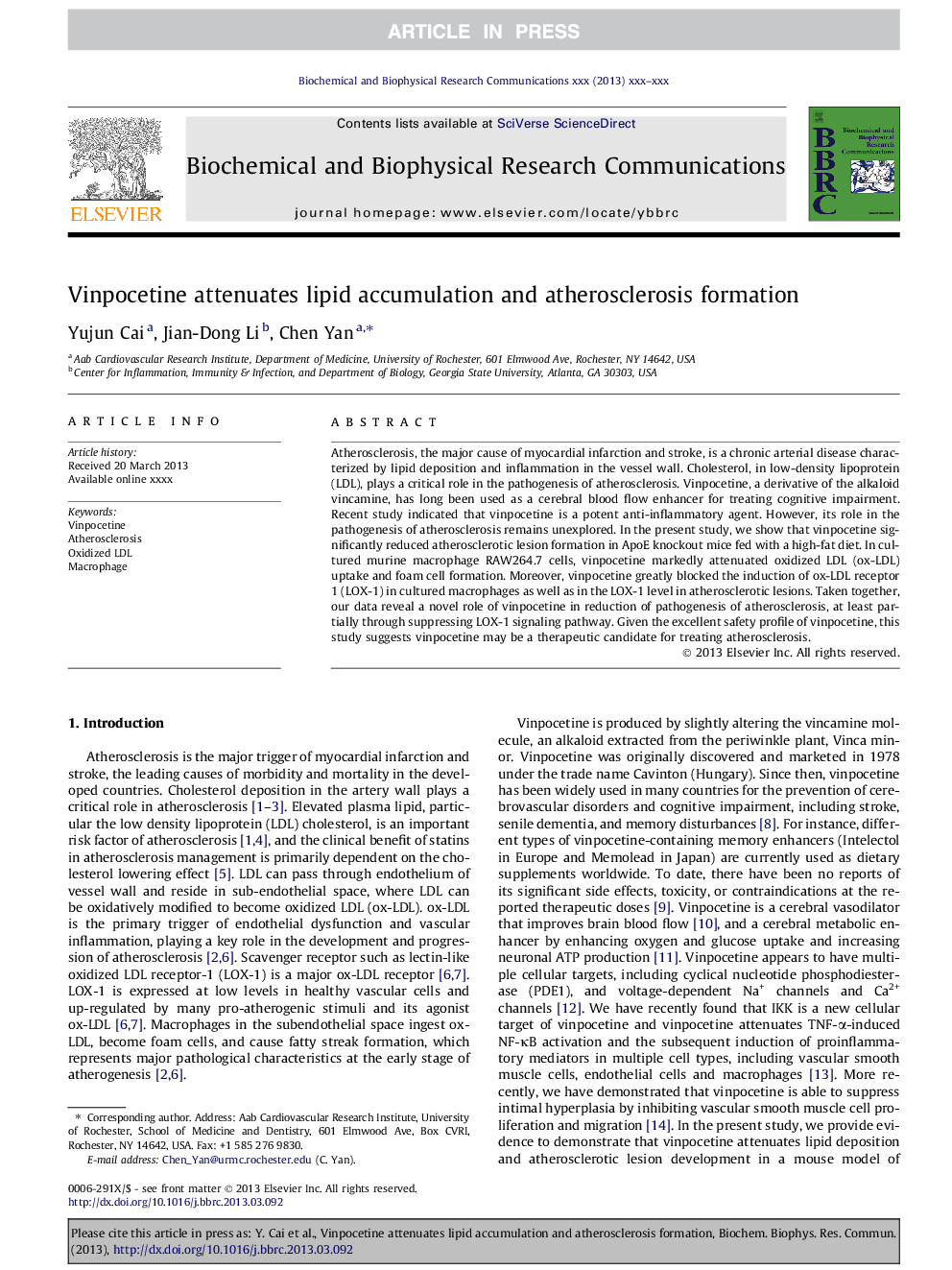| Article ID | Journal | Published Year | Pages | File Type |
|---|---|---|---|---|
| 10759066 | Biochemical and Biophysical Research Communications | 2013 | 5 Pages |
Abstract
Atherosclerosis, the major cause of myocardial infarction and stroke, is a chronic arterial disease characterized by lipid deposition and inflammation in the vessel wall. Cholesterol, in low-density lipoprotein (LDL), plays a critical role in the pathogenesis of atherosclerosis. Vinpocetine, a derivative of the alkaloid vincamine, has long been used as a cerebral blood flow enhancer for treating cognitive impairment. Recent study indicated that vinpocetine is a potent anti-inflammatory agent. However, its role in the pathogenesis of atherosclerosis remains unexplored. In the present study, we show that vinpocetine significantly reduced atherosclerotic lesion formation in ApoE knockout mice fed with a high-fat diet. In cultured murine macrophage RAW264.7 cells, vinpocetine markedly attenuated oxidized LDL (ox-LDL) uptake and foam cell formation. Moreover, vinpocetine greatly blocked the induction of ox-LDL receptor 1 (LOX-1) in cultured macrophages as well as in the LOX-1 level in atherosclerotic lesions. Taken together, our data reveal a novel role of vinpocetine in reduction of pathogenesis of atherosclerosis, at least partially through suppressing LOX-1 signaling pathway. Given the excellent safety profile of vinpocetine, this study suggests vinpocetine may be a therapeutic candidate for treating atherosclerosis.
Related Topics
Life Sciences
Biochemistry, Genetics and Molecular Biology
Biochemistry
Authors
Yujun Cai, Jian-Dong Li, Chen Yan,
